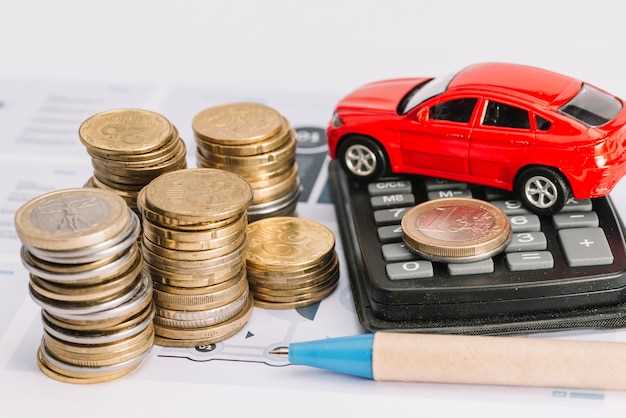What affects your car’s resale value


When it comes to the automotive market, understanding the factors that influence your car’s resale value can save you significant amounts of money in the long run. The resale value of a car is not merely a reflection of its original purchase price but rather a complex interplay of various elements that come into play over the vehicle’s lifespan. To maximize your investment, it’s essential to be aware of these key determinants.
One of the primary factors affecting resale value is the car’s make and model. Certain brands are known for their durability and reliability, leading to better resale values over time. Additionally, market demand plays a crucial role; vehicles that are popular or in high demand tend to retain their value better than others. Understanding these trends can help you choose a vehicle that will hold its value.
Another significant factor is maintenance and condition. A well-maintained car with thorough service records will invariably attract potential buyers and fetch a higher resale value. On the other hand, neglecting maintenance can lead to a rapid depreciation that could have been avoided. In essence, investing time and resources into your car’s upkeep will pay off substantially when it’s time to sell.
Finally, factors such as mileage, age, and market trends also play vital roles in determining your car’s resale value. Each of these aspects contributes to the overall perception of your vehicle in the eyes of potential buyers. By understanding and actively managing these elements, you can significantly enhance the resale value of your car.
Impact of Mileage on Resale Value

Mileage is one of the most critical factors influencing the resale value of a used car. Generally, lower mileage indicates less wear and tear on the vehicle, making it more attractive to potential buyers. Typically, vehicles that have traveled fewer miles are perceived as being in better condition and likely to last longer, leading to a higher value during resale.
When assessing a car’s resale value, it is essential to consider the average mileage for similar vehicles. For many vehicles, a benchmark of approximately 12,000 to 15,000 miles per year is typical. Cars that exceed this average may see a reduction in value, while those under may retain or even increase their worth.
Additionally, the impact of mileage is compounded by other factors such as maintenance history, accident records, and overall condition. A well-maintained used car with higher mileage can still command a decent resale price if the owner has kept up with service routines and repairs. Conversely, a vehicle with low mileage but poor upkeep will often fetch a lower value.
In summary, while mileage is a significant factor in determining resale value, it should be evaluated alongside other attributes of the vehicle to get a complete picture of its worth.
The Role of Vehicle Condition in Pricing

When it comes to determining the resale value of a used car, the overall condition of the vehicle plays a pivotal role. Buyers are inclined to pay more for a car that is well-maintained, clean, and free from major defects. A thorough inspection of both the exterior and interior can significantly influence potential offers.
Exterior Condition
The exterior condition, including the paint quality and body integrity, significantly impacts resale value. Vehicles with fewer scratches, dents, or rust spots tend to attract more interest. A car that has suffered paint damage or has signs of an accident may be valued lower due to perceived risks and potential repair costs.
Interior Condition
The interior of a used car is equally important. Stains, odors, and wear on upholstery can deter buyers and reduce resale appeal. A clean and well-kept interior not only enhances the first impression but also suggests the vehicle has been cared for, ultimately leading to a higher asking price.
Mechanical Condition
Beyond aesthetics, mechanical condition is crucial. A car that runs smoothly, with all components functioning properly, commands a higher resale value. It’s essential that sellers provide maintenance records to demonstrate a history of upkeep. Buyers are more willing to invest in a vehicle that has been regularly serviced and shows no signs of future issues.
Documentation and Inspection
Having documentation of repairs and inspections can bolster the vehicle’s resale value. Services like a pre-sale inspection provide buyers with confidence, positively influencing their perception of the car’s condition. Being transparent about any repairs made strengthens the trust between seller and buyer.
In conclusion, the condition of a used car is a decisive factor in its resale value. Sellers should focus on presenting their vehicles in the best possible state, as this can lead to higher offers and a quicker sale.
Market Trends and Their Effect on Demand
Market trends play a crucial role in shaping the demand for cars, which in turn significantly impacts their resale value. Economic factors, consumer preferences, and technological advancements all contribute to these trends. For instance, fluctuations in fuel prices can shift consumer interest towards fuel-efficient vehicles or electric cars, thereby increasing their demand and resale value. Conversely, if gas prices are low, consumers may gravitate towards larger, less economical cars, affecting the resale market for smaller vehicles.
Another crucial aspect is the rise of sustainability and environmental awareness among consumers. As more individuals opt for eco-friendly cars, the demand for traditional gasoline-powered vehicles may decrease, leading to a decline in their resale value. Car manufacturers are increasingly investing in electric and hybrid models to align with this trend, which affects the overall market dynamics.
Additionally, the popularity of certain makes and models can fluctuate based on industry reviews, safety ratings, and reliability reports. A car that is highly rated may see increased demand, thereby raising its resale value. On the other hand, models with frequent recalls or negative reviews might suffer a decrease in market interest, adversely affecting their resale potential.
Market conditions, such as supply chain disruptions or shifts in consumer spending habits, also play a pivotal role. For instance, during economic downturns, people may postpone car purchases, leading to an oversupply in the market and decreased resale values. Recognizing these trends is essential for sellers aiming to maximize their car’s resale value.



